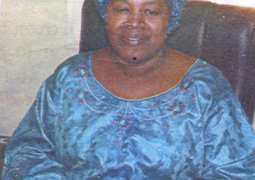The Church had set aside the feast of All Saints since the year 800AD to commemorate the dead especially those who received martyrdom and not to forget about them. It is only the living that can pray for the dead. Many Christians were persecuted in those days by the then king but the Christians did not relent in their love for Christ. Those murdered in their cold blood for Christ and those that died suffering for Him were later remembered by the Christians setting aside 1st November 800 AD as their commemoration day. And since then they had taken November 1 every year to remember their loved ones and those who shed their blood for Christ.
All Saints Day in some countries is set aside for the commemoration of the dead and that day is a holiday for school children. In The Gambia it is observed by the Christian community who go to the cemetery to pray for their dead. The situation becomes very solemn when one sees these Christians gathered or spread all over the cemetery. Before long the Cemetery is cleaned at the end of the rains. The
It is fact that some souls shall stay in what is called Purgatory for some time until they are good enough to go heaven. This is an area said to be between Heaven and Hell. It is when the soul is not qualified to go to heaven and the soul is not qualified to go hell too. As a result the soul stays in between, a place called Purgatory. The prayer offered by the living is said to be the key to helping them to go heaven. It is therefore pertinent to help pray for the dead to help them leave the purgatory stage if they are there stranded in that state.
Pope John Paul 11 said, "The celebration in honour of All Saints reminds us that we were made for heaven, where Our Lady has already gone and now awaits us. The Christian life means journeying here below with our hearts turned upwards, toward our heavenly Father’s house."
The other aspect is that of the All Souls Day. There are those killed and no one think about them. Some die away from home, others perish in war or in gruesome accidents and no one remembers them in prayer. The Church sets the 2nd November aside to commemorate those people who had died in such circumstances. These deserve prayers to help them go ahead to see God and not to perish in hell or remain in purgatory.
Many pray in earnest for their loved ones in many aspects. During special periods in the year Christians send in prayer requests to their parish priests and they pray on their own as well. The prayer often ends with "May light perpetual Light shine on them, amen!"
The Good Scribe
In His public ministry in
One reads the one exception to these conflicts today. A scribe came to Him inquiring which was the first commandment of all. Our previous knowledge of scribes from
Jesus compliments the Scribe as being "not far from the



